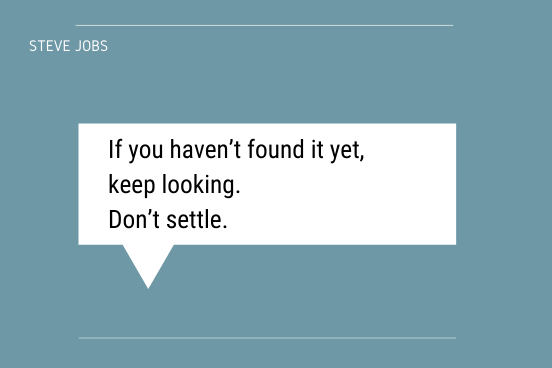|
17/3/2020 2 Comments How To Define Your Dream JobThink about the last dream you had about what the best version of your life could look like. Was this daydream something you had truly defined for yourself or were you emulating someone else’s lifestyle? That’s the problem with the idea of a ‘dream life’ or a ‘dream job’. External opinions of what might be perceived to be the right path can leak into our own thoughts - from status, to wages to job titles - until you’re not sure whether this was an original thought of yours or not. Dreams are the ultimate ‘best-case scenario’. Which is why the vision of the ideal job you might be holding in your head doesn’t take into consideration any of your strengths, skills, values or even simply what you enjoy doing. Then why do we keep leaning towards this version of a dream job?
What kind of environment do you thrive in? Although remote work and freelance work is becoming more prevalent, many of us work best in teams where the colleagues around us are supportive and respectful while working towards the goals of the business together. Now that you know how much time you will spend at work over your lifetime, it makes sense to be in an environment and culture where you feel that you are at your best. What do you find engaging?Are you even interested in the industry you’re in? Maybe when you first joined, the role was more interesting than the company but how do you feel now? What outside of work do you gravitate towards? Can this translate into a career? Asking yourself these questions can help you hone in to what interests you, and if you’re still struggling to get specific it’s a good idea to ask for advice. Your good friends can give you some insights, and a coach can help you delve deeper with these questions. Does this work fit into the rest of your life? The job itself might be awesome, but if it comes at the expense of your personal life and interests then after a while it won’t be a job you love - let alone a dream job. Sometimes small adjustments such as requesting flexible work options can make a huge difference. Make sure you’re prioritising all aspects of your life. If you’re not sure where to start dissecting your situation, look at your current day-to-day responsibilities (diving into last month’s calendar can help). What tasks played to your strengths? Where were your values important? Was there a time where your colleagues provided you with support that was more than perfunctory? If you’re not able to reflect on these points positively it could be time to make a change and start a new job search. Use the same points to analyse new options moving forward - taking the perspective that your job should be something you love can help you to be more discerning and explore options that you are deserving of. And two final points:
To ‘follow your passions’ seems like useful advice, but without actually taking the time to understand what you love in various aspects of your work means that defining your dream job will be even further off. Don't rush the process, and keep revisiting this question: "Is it a dream, or can it be true?'
2 Comments
This blog post is a gem! It provides clear and practical guidance on how to define your dream job. The tips and exercises shared here are incredibly helpful in gaining clarity and setting a clear path towards finding fulfilling work. Thank you for sharing these valuable insights!
Reply
Leave a Reply. |



